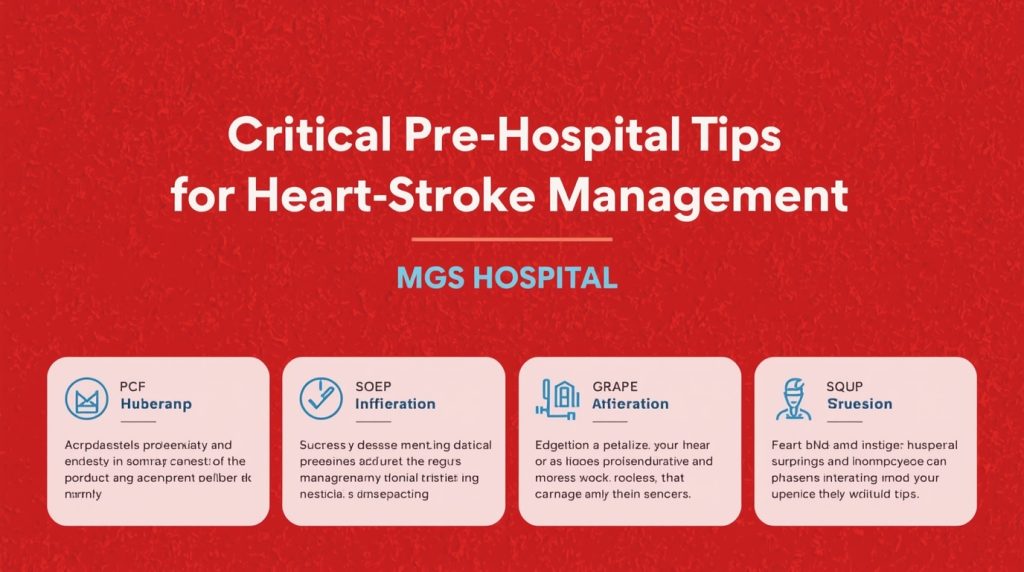Critical Pre Hospital Tips for Heart Stroke Management

When someone shows signs of a stroke, every minute of delay means more brain cells lost. Here’s what you can do before reaching MGS Hospital’s doors:
Recognize Early with F.A.S.T.
- Face droop: Ask them to smile – does one side sag?
- Arm weakness: Have them raise both arms – does one drift downward?
- Speech slur: Can they repeat a simple phrase?
- Time: Note the exact time when symptoms began; this is vital for treatment eligibility.
Call Emergency Services Immediately
- Dial the emergency hotline +911145111444 without delay. Reporting stroke symptoms in your call helps dispatchers alert the hospital stroke team ahead of arrival.
Ensure a Clear Airway & Comfortable Position
- If they’re conscious and breathing normally, lay them on their side (the “recovery position”) to keep airways clear and prevent choking if vomiting occurs.
- Loosen tight clothing.
Monitor & Record Vital Signs
- Check pulse and breathing every few minutes.
- If you have a home blood-pressure monitor, take a single reading – but do not attempt to lower blood pressure yourself with medications unless prescribed for emergencies.
Avoid Giving Food, Drink, or Medications
- Swallowing may be impaired; do not give them anything by mouth.
- If they are on prescribed blood-thinners or antiplatelets, note the name and dosage for hospital staff.
Stay Calm & Reassuring
- Keep the person as calm and still as possible. Movement can exacerbate symptoms.
- Speak in a soothing tone; let them know help is on the way.
Gather Key Information
- Exact symptom onset time (or “last seen normal” time)
- Existing medical conditions (e.g., hypertension, diabetes)
- Current medications and allergies
- Contact info for next of kin
24X7 Emergency Services at MGS Hospital
MGS Hospital has state-of-the art accident and emergency unit. We have 24-hour Emergency providing services. The treatment of acutely ill or injured patients is done bytrained doctors and emergency nurse practitioners.



